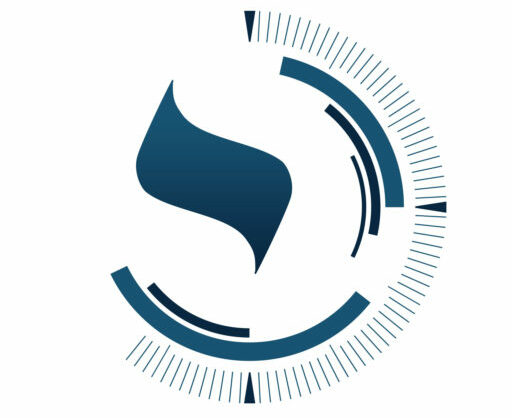The Power of Preparation Rituals
How do you prepare for the work week? What is your routine, your preparation ritual? For me, the week begins with a simple yet powerful ritual. Every Saturday night, I take out a sheet of paper and a pencil, and I spend fifteen minutes crafting a chart that will save me countless hours during the week. This chart is my blueprint, divided into seven columns representing the key areas of my life: Family, Entrepreneurship, Sports, Writing, Learning, Coaching, and Business. Each of these categories has a measurable goal, and the tasks I fill into the 42 boxes are designed to help me reach those goals.

This preparation ritual isn’t just a method for organizing my week; it’s a way of ensuring that the most important things get done. It’s about taking control of my time, prioritizing what truly matters, and approaching my goals with intention. But this idea of preparation is not a modern invention; it is deeply rooted in ancient Jewish wisdom.
Biblical Foundations: The Ritual of Removing the Ashes
In the Bible, having a systematic ritual in place is so important that it is elevated to the rank of a positive commandment. This is positive mitzvah #131 in the Sefer Hachinuch and is symbolized by ashes:
היא שנצטוו הכהנים להסיר הדשן בכל יום מעל גבי המזבח, והיא הנקראת תרומת הדשן, והוא אמרו יתברך שמו ולבש הכהן מדו בד והרים את הדשן.
That is that He commanded the priests to remove the ashes from the altar every day. And this is what is called, removing the ashes. And that is His, may His name be blessed, saying, « he shall put on other vestments, and carry the ashes. » (Leviticus 6:3)
Even the priests in the Temple had their own preparation ritual. They would begin their day by gathering the residue of the previous day’s sacrifice, taking it to the eastern wall of the Temple’s outer courtyard, and pouring the ashes near the Temple steps. This act of preparation was not just a chore; it was a sacred ritual that underscored the importance of starting each day with a clean slate and a clear focus.
Two key lessons emerge from this ritual. First, it highlights the humility of the priests, who were not above performing mundane tasks. Even in their elevated role, they took care to prepare their workspace, demonstrating that no task is too small when it contributes to a larger purpose. Second, the structured, sacred nature of the ritual showed that preparation is a vital part of taking any activity seriously. This aligns with how we, as entrepreneurs, must approach our work—systematically and with respect for the process.
The Deeper Significance of Ashes in Jewish Thought
In Jewish thought, the removal of ashes from the altar, known as Terumat HaDeshen, carries deep symbolic significance. The ashes represent the residue of the past—yesterday’s sacrifices, efforts, and achievements. By removing them, the priests were not only preparing the altar for new sacrifices but also making space for new spiritual growth and opportunities. This daily ritual teaches us the importance of clearing away the remnants of the past to make room for the present and future.
This concept is echoed in the teachings of the Sages, who emphasize the importance of heshbon hanefesh—a personal accounting or self-reflection. Just as the priests removed the physical ashes, we are encouraged to remove the « ashes » of our own past mistakes, regrets, and even successes that might hold us back from new growth. Each day presents a fresh opportunity to start anew, but this requires intentional preparation and reflection.
This idea is beautifully captured in the Talmudic teaching from Eruvin 13b, « Rabbi Shimon ben Lakish said, ‘A person should always incite the good inclination to fight against the evil inclination.' » The Talmud teaches that each day we must renew our efforts, incite the good within us, and prepare ourselves for the spiritual and physical challenges ahead. The ritual of removing the ashes is a physical manifestation of this internal struggle and renewal.
The Big Rocks: Prioritizing What Matters Most
In his book, The Seven Habits of Highly Effective People, Stephen Covey uses a powerful metaphor to illustrate how we should organize our days. He asks us to imagine our day as a jar that we want to fill to its maximum capacity. Would you start with the very small grains of sand (like dozens of emails and little tasks), or would you choose the larger rocks (the important things) first?
Most people might be tempted to start with the sand, but the second approach—starting with the big rocks—is far more effective. When we begin our weekly planning by placing our BIG ROCKS—those truly important tasks—into our schedule first, we ensure that they get done. Everything else, the small rocks and sand, can fit around them. This method prevents us from becoming victims of circumstance, where the tyranny of urgency crowds out the things that matter most.

This concept of prioritization is also reflected in Jewish teachings. The Mishnah in Pirkei Avot (Ethics of the Fathers) 2:1 states, « Be as scrupulous in performing a ‘minor’ mitzvah as in a major one, for you do not know the reward given for the respective mitzvot. » This teaching emphasizes that every action, no matter how small, has significance. However, it also underscores the importance of intentionality—choosing to prioritize and invest in the actions (or « big rocks ») that lead to the greatest spiritual and personal growth.
Biblical Story: The Dedication of the Tabernacle
Consider the biblical account of the dedication of the Tabernacle in the wilderness. The Israelites were instructed to build the Tabernacle exactly as God had commanded, with every detail meticulously planned and executed. Before any offerings were made, the priests had to consecrate the space, cleanse themselves, and ensure that every aspect of the preparation was in place.
This story reinforces the importance of preparation in our spiritual and daily lives. Just as the Israelites could not skip the preparatory steps before making offerings, we cannot skip our own preparation rituals if we want to achieve our goals. Preparation is not just about setting tasks; it’s about creating a sacred space for action, ensuring that everything we do is aligned with our ultimate objectives.
The Tabernacle’s dedication teaches us that preparation is a form of reverence, a way of honoring the work we are about to undertake. In the same way, our weekly preparation rituals should be viewed as acts of respect for the responsibilities and opportunities that lie ahead.
Real-Life Business Story: The Routine of High Performers
High performers across various fields understand the importance of preparation. Take Bobby Unser, a Hall of Fame racecar driver, who once said, « Success is where preparation and opportunity meet. » His words echo the idea that preparation is key to achieving success. Similarly, Alexander Graham Bell, the inventor of the telephone, famously declared, « Before anything else, preparation is the key to success. »
In the business world, successful entrepreneurs often have their own rituals of preparation. For instance, Jack Dorsey, co-founder of Twitter and Square, is known for his strict routines. He dedicates each day of the week to different aspects of his businesses—Mondays for management, Tuesdays for product development, and so on. This structured approach allows him to focus on the big rocks, ensuring that the most important tasks receive the attention they deserve.
Your Own Preparation Ritual
Now, consider your own routine. What is your preparation ritual? How do you ensure that the most important things in your life are given the attention they deserve? By adopting a structured approach to your week, like the biblical priests or modern-day entrepreneurs, you can ensure that your time is spent wisely and your goals are within reach.
As you refine your preparation rituals, remember the lessons of the Terumat HaDeshen—clear away the ashes of the past, prioritize your big rocks, and approach each day with intention and reverence. By doing so, you set the stage for growth, success, and fulfillment in all areas of your life.
— Lionel Benizri —






